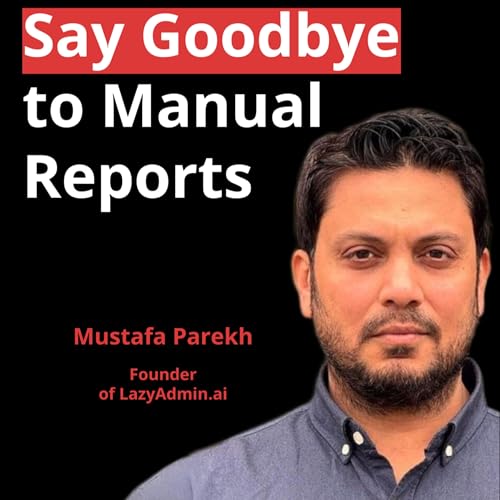AI glasses are evolving faster than anyone expected, but only one company is building them to amplify human agency instead of monetizing your attention.
In this episode of An Hour of Innovation podcast, host Vit Lyoshin explores the future of wearable AI with a guest who is reshaping the entire computing landscape: Bobak Tavangar, Co-Founder & CEO of Brilliant Labs.
They dive deep into why the future of AI must be wearable, open-source, and private by design, and how Brilliant Labs’s team created the first AI glasses built to empower people rather than extract their data.
They discuss the emergence of AI memory, the challenges of building long-lasting hardware, why battery life matters more than most people think, the philosophical risks of “outsourcing our thinking” to AI, and why Big Tech’s approach to wearable AI may be leading us in the wrong direction. Bobak also unpacks how open-source hardware can restore human agency, reconnect people, and potentially re-architect the Internet around the individual.
Bobak Tavangar is a former Program Lead at Apple, a serial founder in computer vision and graph search, and now CEO of Brilliant Labs. He’s a design-first innovator who blends engineering with philosophy, an open-source advocate pushing for transparent, trustworthy AI, and a creator inspired by the Baha’i principle of oneness, building technology that strengthens human connection rather than weakens it.
Support This Podcast
* To support our work, please check out our sponsors and get discounts: https://www.anhourofinnovation.com/sponsors/
Takeaways
* AI glasses can amplify human agency, not replace it, when built with the right philosophy.
* Brilliant Labs designed the first wearable AI platform that is open-source.
* Privacy is central: the device never stores photos or audio, only encrypted embeddings.
* True innovation in hardware requires painstaking component selection and constant iteration.
* The future of computing must align more naturally with human biology than smartphones do.
* AI should be a thought partner, not a substitute for human thinking.
* Overreliance on AI can lead to cognitive atrophy, according to emerging research.
* Open-source systems are essential for trust, transparency, and user control.
* AI memory has the potential to revolutionize learning, recall, accessibility, and life organization.
* Building AI glasses requires deep integration with factories, not just a software mindset.
* Wearable AI may eventually reduce our reliance on smartphones, but the market will decide, not the company.
* Future AI devices should foster connection and human well-being, not distraction or ad monetization.
Timestamps
00:00 Introduction
03:13 Why He Left Apple: The Case for Open-Source AI Glasses
06:00 Why the Next Big Tech Shift Is AI Hardware
09:06 How Brilliant Labs Built Halo: From Idea to Prototype
11:31 What AI Glasses Can Do Today: Memory, Recall, Real-Time Assistance
14:32 AI Memory Explained: How Glasses Learn From Your Life
17:11 The Hardest Problems in AI Hardware: Battery, Sensors, Design
23:59 Meta vs Open-Source: Competing Visions for AI Glasses
30:53 The Future of Wearable AI: Use Cases, Apps, and Developer Tools
35:08 Privacy by Design: Why Brilliant Labs Stores Zero Images or Audio
40:05 Will AI Make Us Smarter or Weaker? The Human Agency Debate
46:56 What Life With AI Glasses Could Look Like in 5–10 Years
50:56 Will Wearable AI Replace Phones? Early Signals for the Future
54:31 Hard Lessons Learned Building Real AI Hardware
01:00:01 Innovation Q&A Round
Connect with Bobak
* Website: https://brilliant.xyz/
* LinkedIn: https://www.linkedin.com/in/bobak-tavangar-29445012/
* X: https://x.com/btavangar
Connect with Vit
* Substuck: https://substack.com/@vitlyoshin
* LinkedIn: https://www.linkedin.com/in/vit-lyoshin/
* X: https://x.com/vitlyoshin
Vit’s Projects
* Podcast: https://www.anhourofinnovation.com/
* AI Booking Assistant: https://appforgelab.com/
 46 分
46 分 46 分
46 分 57 分
57 分 36 分
36 分 1 時間 6 分
1 時間 6 分 1 時間 4 分
1 時間 4 分 49 分
49 分 44 分
44 分
